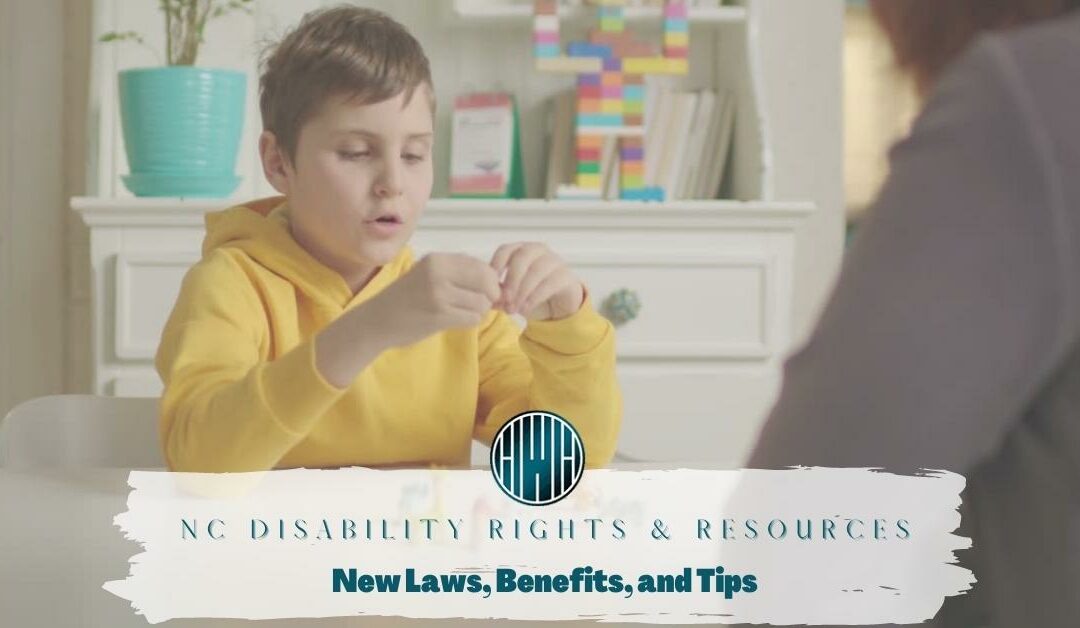If you have a disability or love someone who does, it’s essential to be up-to-date on the latest disability rights news in NC. That’s why we’ve put together this comprehensive guide to disability rights and resources in our state. Here, you’ll find information on new disability benefits and laws, tips for caring for a loved one with a disability, and more.
What are Disability Rights and Resources in NC?
Individuals with disabilities have legal disability rights that extend to many different areas of life, including education, employment, housing, and more. Additionally, there are several resources available to individuals with disabilities and their families. These resources can provide financial assistance, access to disability-related services, and more.
Knowing your rights can help you advocate for yourself or your loved one if they face discrimination or other challenges. And taking advantage of available resources can make a big difference in improving the quality of life for those with disabilities.
What are Some New Laws Related to Disability?
In recent years, North Carolina has enacted several laws that impact individuals with disabilities. For example, in 2017, the state passed a law ensuring that students with disabilities have access to the same opportunities to participate in extracurricular activities as their non-disabled peers. This law is crucial because it helps level the playing field for students with disabilities, giving them more opportunities to get involved in school and develop critical social skills. (1)
In 2021, a new NC bill began to help people with autism spectrum disorder (ASD) in the state more easily access medically necessary behavioral therapy. This law, SB 103, requires insurance companies to provide coverage for autism spectrum disorder (ASD) diagnosis and treatment. Before this law, many families had trouble getting insurance coverage for ASD diagnosis and treatment, which can be very costly. (2)
What are Some Tips for Caring for a Loved One Who is Disabled?
If you have a loved one who is disabled, you may feel overwhelmed at times. Here are a few tips that can help:
- Educate yourself about your loved one’s disability. The more you know, the better equipped you’ll be to understand their needs and advocate for them.
- Build a support network of other family members, friends, and professionals who can offer assistance when needed.
- Take advantage of available resources. Many organizations provide services and support to individuals with disabilities and their families. Utilizing these resources can make a big difference in your loved one’s quality of life.
- Create a plan for times when you can’t be there. This plan should include who will provide care, how they will contact you in an emergency, and what to do if specific needs arise.
- Make sure your loved one has a voice. Encourage them to participate in decisions about their care and advocate for themselves whenever possible.
New Disability Employment Rights
The Americans with Disabilities Act (ADA) protects the right of individuals with disabilities to work in the community for honest wages. In NC, many disabled individuals work in a segregated environment with less pay and inadequate training for better positions. The NC Department of Health and Human Services (DHHS) plans to help workers with disabilities find jobs in their communities with equal pay and hours. (1)
According to disabilityrightsnc.org, DHHS will work toward fully providing these employment rights and resources in North Carolina by 2026:
- Supported employment – Help to find work and on-the-job training
- Customized employment – If you struggle to do every part of a job, DHHS will help you find work you can do well.
- College education – If you need more education to get a job you want
- Discovery – Guided learning about your interests to find the best job for you
- Transportation – Providing transportation to and from work
- Assistive technology – If you need technological capabilities to do your job
- Benefits counseling – understand how getting more pay can change your Social Security and health care coverage
How Can I Help a Disabled Loved One Live Independently in NC?
One way to help a loved one live with comfort independently is by supplementing their income with a Special Needs Trust. A supplemental care SNT is a source of benefits for the disabled individual who also wants to qualify for need-based government benefits.
Need-based government programs do not count this type of trust as income for a disabled individual. With a supplemental care SNT, it is easier to have eligibility for crucial benefits such as transportation, health insurance, and housing from government sources.
Individuals with Disabilities: New Laws Allow Self-Settled Trusts
If you are an individual with special needs or disabilities, new laws can help. Perhaps you have a settlement, inheritance, or funds that prevent you from qualifying for needed benefits. A self-settled special needs trust can work for you. An older federal rule mandated that disabled individuals could not open or draw up a self-settled trust themselves. They had to rely on a close relative or even go to court to gain the right to open and benefit from a self-settled trust.
However, that rule no longer exists, thanks to the Special Needs Trust Fairness Act of 2016. Now it is possible to use your own funds to open a trust that distributes income to you each month without counting against your income limits for benefits.
We Can Help
At Hopler, Wilms, and Hanna, we help families and individuals with disabilities get the help they need. Our special needs legal team enables you to take advantage of the benefits available in NC that can improve quality of life. Whether you want to open a trust or appoint a power of attorney, we’ve got your legal back! Contact us today to schedule a consultation and find out how we can help!

